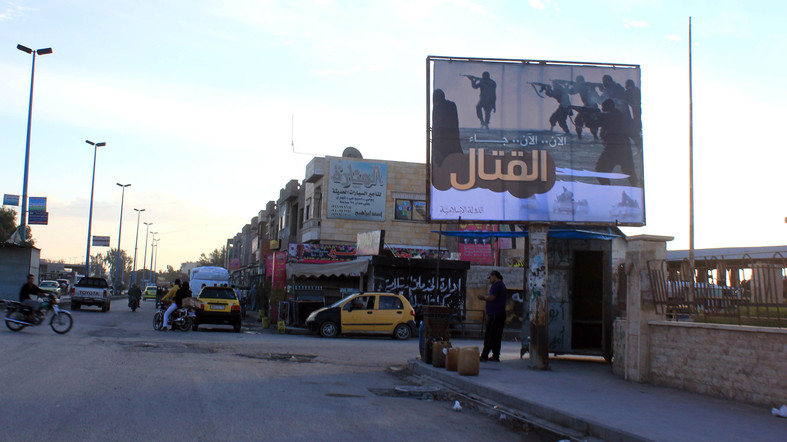Beirut, Washington- The Syrian Democratic Forces (SDF) announced on Tuesday the creation of the Raqqa Civilian Council under a joint Arab-Kurdish leadership to administer the northern Syrian city after its complete liberation from ISIS militants.
“The civilian council of Raqqa will be charged with administering Raqqa and the surrounding province after liberation,” the SDF Command said in a statement.
The announcement was made following a meeting held between SDF leaders and representatives from the Raqqa tribes in the town of Ain Issa, located some 65 kilometers north of Raqqa city.
During the meeting, participants announced the formation of the council and said 14 committees are expected to run the province.
The Syrian opposition was not enthusiastic about this announcement. Several sources feared the new council would provide the Arab cover for the Kurdish People’s Protection Units (YPG) to control Raqqa.
Head of the Kurdish National Council Ibrahim Berro told Asharq Al-Awsat on Tuesday that the Kurdish Democratic Party is using a policy that increases the rivalry of the Syrian people’s components against Kurds.
SDF sources told Asharq Al-Awsat that Leila Mustafa, a Kurdish woman from Raqqa, was elected as the joint head of the council, which is also led by Sheikh Mahmoud Shawakh al-Barsan, a prominent leader of the Raqqa tribes.
The SDF source said efforts were expended to form a Kurdish internal security force known as the “Asayesh force” to perform the duties of local police in the liberated areas of Raqqa.
Meanwhile, AP reported on Tuesday that President Donald Trump’s plans for Syria have come into clearer view since he ordered cruise missiles fired on a Syrian air base to punish Bashar Assad for a chemical weapons attack.
“The strategy breaks down into three basic phases: defeating ISIS, restoring stability in Syria region-by-region and securing a political transition in which Assad ultimately steps down,” a US official told AP.
Trump’s airstrikes marked the first US attack against Assad’s forces, but the official said there’s no appetite for using America’s military to depose Assad.
At the battlefield, SDF forces continued their incursion in the city of Tabqa, where they are leading fierce battles against ISIS jihadists.
